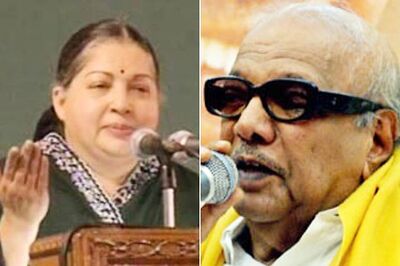
views
Forum of Academics for Social Justice has written a letter to the Vice Chancellor of Delhi University Professor Yogesh Kumar Singh and Registrar Dr. Vikas Gupta demanding that before the commencement of the admission process for SC, ST, OBC quota in UG, PG, PhD courses in Delhi University colleges, subject wise, the data of reserved category admissions in science, commerce and humanities subjects of the last five years should be called for and checked.
“It has become evident that in the last few years, colleges have given more admission than the sanctioned seats, while the reserved seats are not filled in proportion. These colleges do not follow the UGC guidelines and reservation circulars/instructions issued by the Ministry of Education. As is known, this time admission in DU is being done through Common University Entrance Test (CUET) score. Also, the admission schedule for undergraduate courses is being released on Monday, 12 September. At the same time, the session for post graduate courses will start at the end of October. In addition, the process of admission to PhD is expected to be done from November,” reads the letter.
The forum in its letter highlighted that according to the reservation policy of the government of India, there is a quota of SC – 15 per cent, ST – 7.5 per cent, Other Backward Classes (OBC) – 27 per cent and EWS- 10 per cent reservations, apart from PWD, Wards, ECA, Sports, Kashmiri Migrants and supernumerary quota.
As per the letter, the complete guidelines for admission in the academic session 2022–23 in Delhi University will be issued on Monday, 12 September. After this, counselling will be held in October for allotment of seats, which will lead to admissions in different colleges.
Dr. Suman stated in the letter that apart from 70 thousand seats, colleges increase the number of seats at their own level by 10 percent every year. “Most of the colleges do not fill the seats of reserved categories in appropriate proportion of the increased seats. He also said that 10 percent reservation has been given for economically weaker students of general category which has led to an overall increase of 25 per cent in the total number of seats to be filled in DU. In this way, according to the statistics of the university, more than 75 thousand seats are up for grabs this year,” stated the letter.
He claims that every college releases high cut off list at the time of admission, due to which reserved category seats remain vacant every year.
“The Dean, Students Welfare, runs a special drive after the fifth cut-off list to fill the reserved seats; even then, only a slight relaxation is given in the cut-off,” claims the forum. Dr. Suman says that while students are available, they are not able to take admission only because colleges do not lower their cut-off to accommodate them. The college administration can fill the seats by reducing the cut off realistically and sufficiently, provided they have a genuine intention of filling the reserved seats, he added.
He has also informed that Grievance Cells have been made in Colleges for the teachers/staff/students of the reserved categories, but these cells do not do any work; they exist only on paper. The teachers appointed in the cell say that they have not been given any power on the basis of which they may represent to the University. Along with this, such teachers are appointed by the principals in the cell who are their favorites without following any democratic or rotational method. He says that if the Grievance Cells performs their roles properly, then there would not be any problem related to the admission of students in colleges, appointment of teachers and promotions, but these cells obey the diktats of the principals.
The Forum has requested the VC to provide data from the colleges/departments of the students before the start of the admission process. He says that, if possible, DU should constitute a monitoring committee for the colleges in which the teachers of the reserved category should be included, apart from the current and former academic council members.
The proposed Monitoring Committee should talk to SC, ST, OBC students about the problems faced by them and prepare a report on the status of facilities in the colleges which should be sent to UGC, Ministry of Education, SC, ST Commission, and Parliamentary Committee. Apart from this, this report should be made public in the media so that the common people can know how the mechanisms of redressal of discrimination are applied in universities / colleges.
Read all the Latest Education News and Breaking News here




















Comments
0 comment